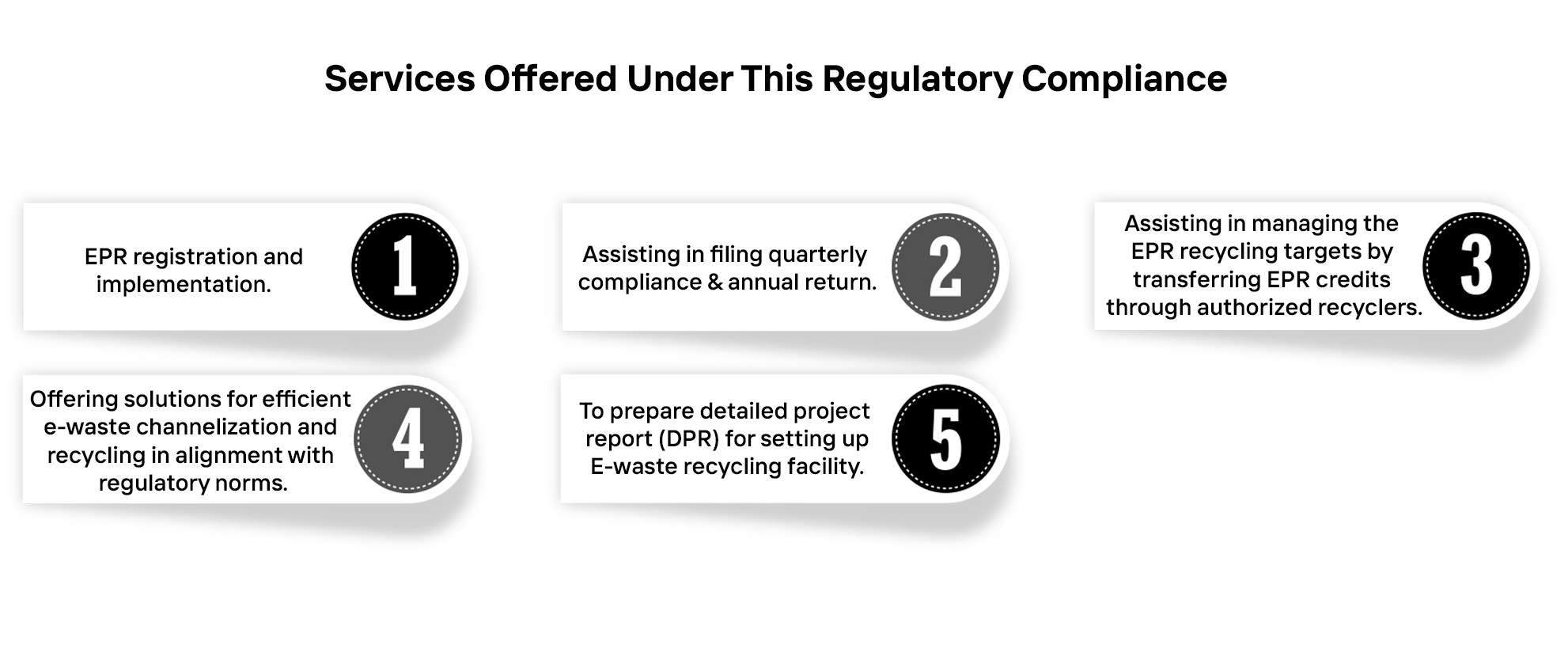The E-Waste Management Rules, 2022, along with subsequent amendments, establish a comprehensive framework for the environmentally responsible management of electronic waste. Emphasizing Extended Producer Responsibility (EPR), the rules mandate producers, manufacturer, recycler and refurbisher to ensure proper collection, recycling, and disposal of e-waste through authorized recyclers. The regulations promote a circular economy by encouraging material recovery, restricting landfill disposal, and prohibiting incineration, ensuring sustainable and compliant e-waste management.
The objective of this rule is regulated and streamline the environmentally sound management of e-waste in India. Here are the key compliance aspects:
Extended Scope and Coverage
- The rules expand the scope from 21 to over 134 types of electronic equipment, including their components, consumables, parts and spares under Schedule-I.
- Applicable to manufacturers, producers, refurbishers, and recyclers involved in various stages of the e-waste lifecycle.
- Applicable to every manufacturer, producer refurbisher, dismantler and recycler involved in manufacture, sale, transfer, purchase, refurbishing, dismantling, recycling and processing of e-waste or electrical and electronic equipment listed in Schedule I, including their components, consumables, parts and spares which make the product operational
Registration Requirements
Extended Producer Responsibility (EPR)
Digital Reporting and Returns
Environmental Compensation and Penalties
Special Provisions for Solar Equipment




